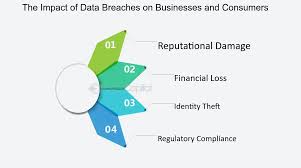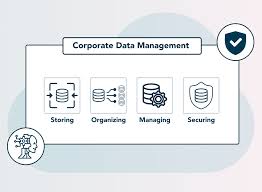Corporate Data Breaches: Latest Global News
Data breaches are becoming a serious threat in today’s digital world. Companies are constantly collecting large amounts of data, but this data isn’t always secure. In recent years, corporate data breaches have hit major businesses across the globe, leading to significant losses and raising concerns about privacy and security. This article explores the latest news on global data breaches, how they happen, and what companies are doing to protect their data.
What is a Corporate Data Breach?
A corporate data breach occurs when sensitive information from a business is accessed, stolen, or exposed without permission. This information could include customer details, financial records, or confidential business documents. Hackers often target companies because they hold valuable information that can be sold or used for identity theft and fraud.
Businesses rely heavily on technology, which makes them prime targets for cyberattacks. Many data breaches happen because of weak security measures, outdated software, or human error. Sometimes, a single mistake, like clicking on a suspicious email link, can allow hackers to access the company’s entire network.
In recent years, data breaches have become more sophisticated. Hackers use advanced techniques like phishing (tricking employees into giving sensitive information) or ransomware (locking a company’s data until a ransom is paid). Once the breach occurs, the stolen data can be sold on the dark web or used to harm the company’s reputation.
The damage caused by a corporate data breach can be enormous. Companies may lose millions of dollars, face legal action, or lose the trust of their customers. Some businesses may never fully recover from a breach, which is why data security is more important than ever.
Recent Global Corporate Data Breaches
Several high-profile data breaches have made headlines recently, affecting businesses worldwide. In 2023, for example, the retail giant Target suffered a major breach that exposed the credit card details of over 40 million customers. This incident led to widespread panic and a significant drop in customer confidence. Target had to invest heavily in security upgrades and offer compensation to affected customers.
Another recent breach involved a global financial services company. Hackers gained access to sensitive financial data, including bank account details and social security numbers of millions of people. This breach resulted in several lawsuits, and the company faced massive fines for failing to protect its customers’ information.
Tech companies are also frequent targets of data breaches. A popular social media platform experienced a breach that exposed the personal information of millions of users. This incident raised questions about the safety of sharing personal information online and prompted the company to improve its privacy settings and security features.
The healthcare industry has also been hit hard by data breaches. Hospitals and healthcare providers hold sensitive patient data, making them attractive targets for cybercriminals. In 2024, a large hospital network in Europe was attacked, resulting in the exposure of patient medical records. This breach caused widespread concern about the safety of personal health information and forced the hospital to invest in stronger cybersecurity measures.
Causes of Corporate Data Breaches
Corporate data breaches can happen for many reasons, and businesses need to understand the causes to prevent them. One of the most common causes is human error. Employees may accidentally click on malicious links, use weak passwords, or fail to follow security protocols. Hackers often take advantage of these mistakes to gain access to a company’s network.
Outdated software is another major cause of data breaches. Companies that fail to update their systems regularly are vulnerable to attacks. Hackers constantly look for weaknesses in software, and if a company is using outdated versions, it becomes an easy target.
Phishing attacks are another common method used by cybercriminals. These attacks involve sending fake emails or messages that appear legitimate, tricking employees into giving away their login details or other sensitive information. Once hackers have this information, they can gain access to the company’s systems and steal valuable data.
Weak security measures are also a major issue. Some companies fail to invest in proper security tools like firewalls, encryption, and antivirus software. Without these protections, it becomes much easier for hackers to breach a company’s systems. Companies need to regularly assess their security measures and ensure they are using the latest technology to protect their data.
Impact of Corporate Data Breaches

The impact of a corporate data breach can be devastating for a business. One of the most immediate consequences is financial loss. Companies may have to pay millions of dollars to recover from the breach, including legal fees, fines, and compensation for affected customers. The longer it takes to detect and respond to the breach, the more costly it becomes.
Another major impact is the loss of customer trust. When customers hear that a company has been breached, they may lose confidence in that company’s ability to protect their personal information. This can lead to a decline in sales and a damaged reputation that may take years to rebuild.
Legal consequences are also common. Depending on the nature of the breach, companies may face lawsuits from affected customers or regulatory bodies. Many countries have strict data protection laws, and failing to comply with these laws can result in significant penalties.
Finally, a data breach can lead to operational disruption. If a company’s systems are compromised, it may be forced to shut down operations temporarily to fix the issue. This can result in lost revenue and missed business opportunities.
How Companies Are Responding to Data Breaches
In response to the growing threat of data breaches, companies are investing heavily in cybersecurity. One of the most common strategies is to hire cybersecurity experts who can identify vulnerabilities and implement stronger security measures. These experts work to protect a company’s network, monitor for suspicious activity, and respond quickly to any potential breaches.
Many companies are also using encryption to protect sensitive data. Encryption scrambles the data, making it unreadable to anyone who doesn’t have the correct key. Even if hackers manage to steal the data, they won’t be able to use it without decrypting it first.
Regular security audits are another important step companies are taking. These audits involve checking the company’s systems for any weaknesses and fixing them before they can be exploited by hackers. Businesses are also encouraging employees to undergo cybersecurity training, teaching them how to spot phishing emails and avoid making mistakes that could lead to a breach.
Additionally, companies are using multi-factor authentication (MFA) to add an extra layer of security. MFA requires users to provide two or more forms of identification, such as a password and a fingerprint scan, before they can access sensitive information. This makes it much harder for hackers to break into a company’s systems.
Conclusion
Corporate data breaches are a growing threat, but companies can take steps to protect themselves. By investing in strong cybersecurity measures, training employees, and staying up to date with the latest technology, businesses can reduce the risk of a data breach. Staying vigilant and proactive is essential in today’s digital world, where the cost of a breach can be enormous.
As the world becomes more connected, the importance of data security will only continue to grow. Companies that prioritize cybersecurity will be better positioned to protect their data and maintain the trust of their customers.



